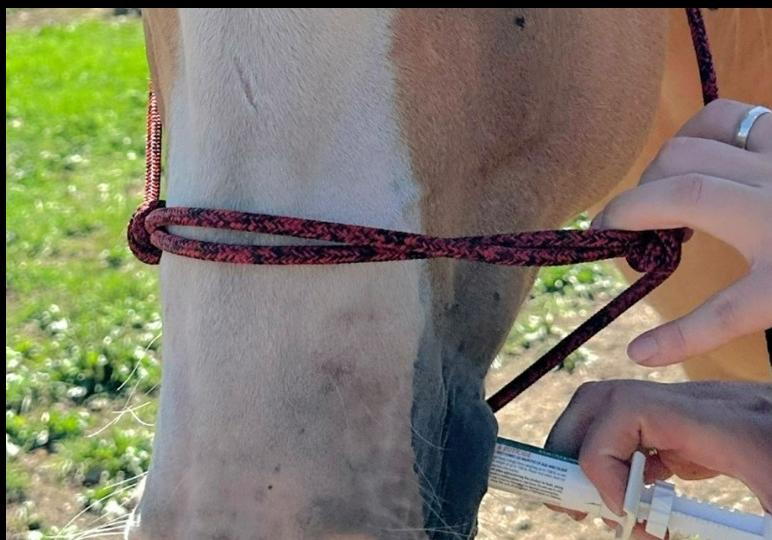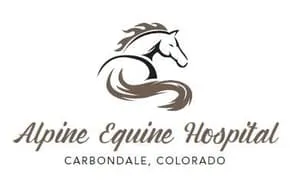
The goal of a comprehensive deworming protocol is to reduce the risk of clinical illness. We are not trying to completely rid the animal of parasites as this would be impossible and lead to parasite drug resistance. Overuse of deworming products had caused resistance in our parasite populations. We only have a few effective classes of drugs to use in horses, so it is important we maintain the efficacy of these important drugs. Most horses only need to be dewormed twice yearly. It’s important to do an annual fecal egg count to ensure your horse is being dewormed the appropriate number of times a year and with the appropriate dewormer.
Owners with herds greater than 5 or with multiple horses on a single pasture should receive a fecal egg count reduction test. This involves a fecal egg count before and two weeks after deworming to evaluate the change in worm burden. This will allow us to evaluate the parasite population for any resistance to common dewormers and to make changes to the deworming program.
Common types of internal parasites:
Small strongyles or cyathostomins are ubiquitous in grazing horses but rarely cause disease.
Large strongyles or Strongylus vulgaris are considered the most pathogenic (disease causing) parasite. These worms can cause gastrointestinal signs such as decreased appetite or diarrhea.
Tapeworms can be difficult to control due to their life cycle, but they do not tend to cause much disease in horses.
Roundworms or ascarids are the most important worms in foals. The life cycle of these worms causes them to migrate through the trachea and they live in the small intestine. This can cause respiratory signs in foals and lead to poor development of the foal. Young animals with very high ascarid burdens are susceptible to obstructed intestines that can lead to colic or death.
Pinworms live in the large intestine but deposit their eggs near the horse’s anus. This causes horses to have a very itchy hind end. These are difficult to treat and control so pasture management is a large part of their control.
Bots or Gasterophilus eggs are laid on the horse’s coat. Horses ingest these eggs when they lick or scratch their legs. The larvae develop in the stomach and small intestine. Bots rarely cause clinical signs but can cause gastric ulcers due to the larval development in the stomach.
Important things to consider other than dewormer:
Frequently rotate pastures, this helps decrease the worm burden on pastures.
Remove manure frequently.
Drag pastures in hot/dry weather to help eliminate eggs.
Do not over burden pastures.
Working closely with your veterinarian to develop a deworming protocol that best supports your horse and allows us to be good stewards of our available drugs. In the long run, performing fecal egg counts and fecal egg reductions allows us to use less dewormer, save money on disease, and ensures our drugs remain efficacious.
